 | | | As I walked outside from my Arlington apartment, I noted the fogginess of that morning. It must be going to rain later, I thought. Walking into work from the Metro, I felt my lungs burning. What I hadn’t realized was that the fogginess was smoke. What I thought was just another foggy day was smoke from Canadian wildfires hundreds of miles away filling my lungs. The world is on fire. In his new book, The Heat Will Get You First, featured in our “Books” section, Jeff Goodell takes us on a journey to understand the warming world. A world driven by heat. The world is a delicate ecosystem and with heat comes a range of unforgiving consequences. Consequences range from rising sea levels, wildfires, the spread of disease and more. So, how do we address it? We have known about climate change for decades now and we are still making the same mistakes. At some of the largest environmental firms, universities, and private companies, fossil fuel lobbyists run rampant. Take a look at the exposé by Oliver Milman in The Guardian, who reveals that… “More than 1,500 lobbyists in the US are working on behalf of fossil-fuel companies while at the same time representing hundreds of liberal-run cities, universities, technology companies and environmental groups that say they are tackling the climate crisis” Examples include Google and Baltimore City. They share lobbyists with oil and gas companies such as ExxonMobil. Timmons Roberts of Brown University notes, “When you hire these insider lobbyists, you are basically working with double agents. They are guns for hire.” These organizations argue that sharing lobbyists with oil and gas companies does not affect their efforts, but others argue that is impossible. James Browning, a former Common Cause lobbyist, explains that by using these lobbyists climate groups are focusing on short term wins rather than playing the long game. Colleges and universities are crucial players in this game. Meanwhile, universities are again under attack from right. With the most recent ruling on affirmative action, colleges and their students are scrambling to understand what this new landscape looks like. In articles from Diversity in Higher Education, authors Emil Guillermo and Jon Edelman dive into this complex issue. Universities are unique spaces. With issues like climate change, campuses need to do what they do best, lead. In an article from Yale Climate Connections, Donald Wright reviews Universities on Fire. In it, Bryan Alexander explores the role universities play in addressing the climate crisis and how they will be affected over the next 75 years. He explains that campuses are places of innovation, where solutions to the climate crisis can be developed, or not. It is up to the university to decide its role. This is where students come in. Students have power to influence a university's actions and decisions. And speaking of books, in his latest review essay, RCC’s own Bob Musil sees Jennifer Ackerman, author of What an Owl Knows — with her stupendous research, sensuous prose, sense of wonder, and empathy for both birds, animals, and people — as a worthy successor to Rachel Carson. So, we continue to look for the next generation of Rachel Carsons through the RCC’s Fellowship Program which has now announced its winners for the 2023-24 academic year. The RCC will fund, mentor, and work with twenty-nine students from campuses across the United States. Starting in the Fall semester, they will work throughout the year on projects and campaigns ranging from divestment to food access, environmental justice, renewable energy transitions, and more. You can meet our 2023-24 cohort of RCC Fellows and the projects they’ll be carrying out here: 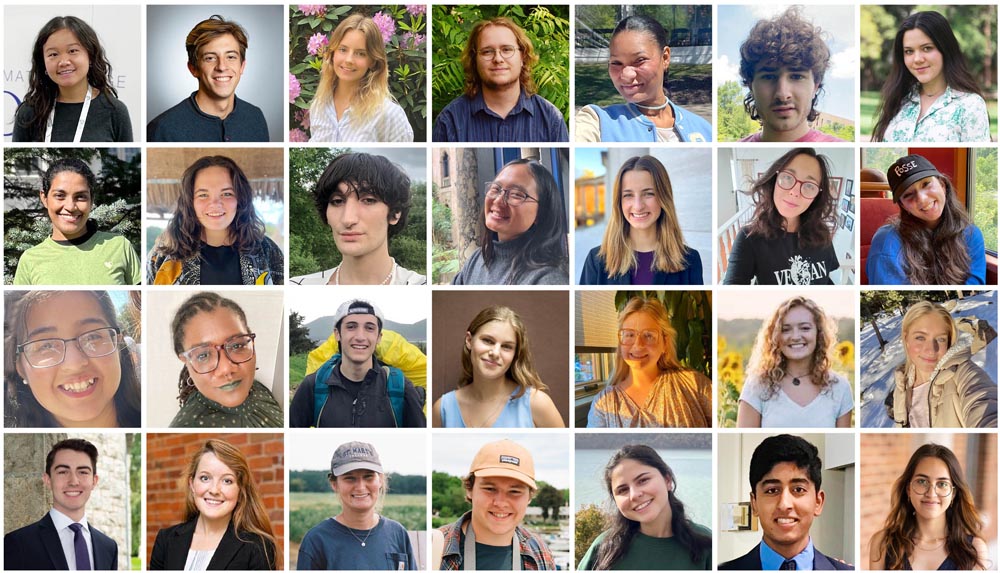 Meanwhile, throughout this overheated summer, The Rachel Carson Council has had the privilege of working in our Washington office with nine outstanding RCC Stanback Fellows (eight from Duke and one from Yale) whom you can meet here: In “RCC Fellows Speak Out,” we highlight their publications — ranging from reviews of important environmental books through essays on the importance of wetlands, how permitting battles on Capitol Hill are critical to clean energy, to a stark assessment of how Gov. Ron DeSantis’ presidential aspirations shape his environmental record, and much more. These top young leaders have also been advocating on Capitol Hill, meeting with established environmental leaders, and producing in-depth RCC reports -- to be published in the fall -- on factory farms, or CAFOs, the greenwashing of wood pellet production by industry giants Enviva and Drax, nature-based solutions for our battered coastal shorelines, and a definitive look and policy recommendations for permitting U.S. energy production.  The RCC Campus Dispatch will resume with our September issue. But I urge you in the meantime to keep in touch with us about news and developments on your own campus. Think, too, about inviting the RCC to your campus for lectures, classes, events, and the chance to learn more about how student environmental standouts you know can become RCC Fellows in 2024! Mackenzie Bodman, Associate Director, Civic and Campus Engagement. | | | | | | | | 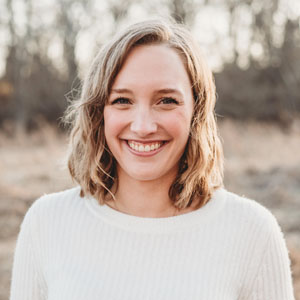 Mackenzie Bodman is the Associate Director of Civic and Campus Engagement for the Rachel Carson Council. An advocate for environmental justice, climate change and policy, Mackenzie works to combine science, justice, and policy to advocate for imaginative solutions to environmental challenges. Mackenzie Bodman is the Associate Director of Civic and Campus Engagement for the Rachel Carson Council. An advocate for environmental justice, climate change and policy, Mackenzie works to combine science, justice, and policy to advocate for imaginative solutions to environmental challenges. | | | | | | The Antidote to the Supreme Court Decision on Affirmative Action? The Essay Will Keep Us Talking About Race As university administrators and admissions officers scramble to comply with the Supreme Court’s opinion, here’s the counterintuitive way out. Be color blind. But keep talking about race. I’ve always talked about race. And now, I’m upping the volume. The Supreme Court made me do it. The six conservatives may have on their race blindfolds (the ones they want everyone to wear). But they don’t have earplugs. | | | | | | | | How Will the Affirmative Action Ruling Affect the College Essay? Although the U.S. Supreme Court struck down race-conscious admissions programs last week, it did not eliminate the consideration of race entirely. “Nothing in this opinion should be construed as prohibiting universities from considering an applicant’s discussion of how race affected his or her life, be it through discrimination, inspiration, or otherwise,” wrote Chief Justice John G. Roberts Jr. in his majority opinion. | | | | | | | | The Right’s Campus Culture War Machine How conservatives built a formidable network for ginning up scandal in higher education Wherever you get your news, whether it is Twitter or The New York Times, you might reasonably imagine that higher education is awash in political conflict. You might see with dismay that progressive students are intolerant, hysterical, and fragile; or, depending on your sources, that right-wing students platform the vilest, most bigoted media personalities in the name of free speech. | | | | | | | | After SCOTUS Ruling, Biden Vows to Cancel Student Debt Anyway When the U.S. Supreme Court struck down President Joe Biden’s plan to cancel nearly half a trillion dollars of student debt, his administration moved quickly to show that it wasn’t giving up. “I will stop at nothing to find other ways to deliver relief to hard-working middle-class families,” the president said in a statement. “This fight is not over.” Within hours, Biden announced a new plan for loan forgiveness. | | | | | | | | ‘Double agents’: Fossil-fuel Lobbyists Work For US Groups Trying to Fight Climate Crisis More than 1,500 lobbyists in the US are working on behalf of fossil-fuel companies while at the same time representing hundreds of liberal-run cities, universities, technology companies and environmental groups that say they are tackling the climate crisis, the Guardian can reveal. Lobbyists for oil, gas and coal interests are also employed by a vast sweep of institutions. | | | | | | | | We Are Still Part of the World Leah Penniman, ed., Black Earth Wisdom (Harper Collins, 2023) “We were alerted to Sandy’s arrival on our farm … when we heard a deafening and perplexing roar from the forest,” writes Leah Penniman, a Black Kreyol farmer from Soul Fire Farm in New York. “The powerful sound was coming from a newly formed ‘river’ cascading from the forest and headed right toward our crop fields.” | | | | | | | | Trash: A Haunting Past, Present, and Future Edward Humes, Garbology: Our Dirty Love Affair with Trash (Penguin Random House 2012) As someone attuned to environmental issues, I knew trash was a problem. But Pulitzer Prize-winning journalist Edward Humes’ Garbology: Our Dirty Love Affair with Trash conveys the details and damages of the massive trash epidemic in the United States. Humes opens with countless telling trash statistics: Only the Great Wall of China and a giant landfill on Staten Island can be seen from space. | | | | | | | | | | Wetlands or Wastelands? When I was a kid growing up in northeastern North Carolina, my grandmother took my brother and me on a few hikes across the forests and wetlands of the coastal plain. She’s a gifted birder with an enviable ability to detect a species from its call. What my brother and I lacked in outdoor knowledge we made up for in complaints. I remember us traveling in her bright red Toyota Echo, drinking from hot water bottles, and dreaming of air conditioning and ice cream and whatever else awaited us after our excursions. Still, my grandmother was determined to show us the wonders of nature. | | | | | | | | Campus Divestment Action with Teeth: A Novel and Simple Legal Strategy In the decades-long fight against fossil fuels, activists have employed myriad approaches to spur institutional divestment from the industry. Fossil fuel investments are unethical and immoral, organizers have argued. They are politically reckless and financially irresponsible. This is all compelling and true. But recently, student organizers at some of the most prominent universities across the country have been putting a new strategy to work: a novel legal approach. | | | | | | | | First Flight: Where the Hogs Are RCC Stanback Fellows Lucy Goldman and Francesca Cetta Reflect on the Research Flight of a Lifetime LG: With my coffee cup gripped firmly in one hand, I raised the other to block my eyes from the North Carolina sun streaming through the windshield. The clock on the dashboard read 6:15 am. When I accepted a Climate Justice Stanback Fellowship with the Rachel Carson Council (RCC), I never envisioned that it would send me six hours south of D.C. to Eastern North Carolina to investigate factory farms in the region. | | | | | | | | The Sacrificing of Florida for One Governor’s Political Future In May, on a strangely warm but overcast day in Durham, North Carolina, I graduated from Duke University after four years of studying, meeting new people, and experiencing world-changing events. After listening to our commencement speaker, throwing our caps into the sky, and saying tearful goodbyes, I finished packing my apartment and began my drive home - to South Florida. Traveling from North Carolina to Florida is accompanied by several changes. | | | | | | | | The Decarbonization Dilemma Last weekend, I boarded an Amtrak train in Union Station and took the efficient 2.5-hour train ride from Washington, DC to my hometown, Princeton, New Jersey. The trip is not known to be particularly scenic, and most commuters keep their eyes on their books or phones, with the exception of the occasional sunset view over the rivers that feed into the Chesapeake. What goes largely unnoticed are the multitude of fossil fuel power plants and electrical substations, a crucial component in the transmission and distribution of electricity to consumers, that sit unassumingly along the journey among low-income housing. | | | | | | | | Life in the Eerie Regions Below the Edge of Darkness: A Memoir of Exploring Light and Life in the Deep Sea (Penguin Random House, 2021) Though they lie far beyond the reach of sunlight, the depths of the ocean are anything but invariably dark. Instead, bioluminescent animals provide where nature cannot, creating a distinctive world of underwater light amidst the abysses and trenches that characterize the deep sea. This is the setting for Dr. Edith Widder’s Below the Edge of Darkness, a memoir chronicling a lifetime spent in these eerie regions. | | | | | | | | Offshore Wind and Whales: The Next Nationwide Misinformation Battle In New Jersey, Republicans have found an unlikely cause to champion — whale conservation. Amidst recent reports of whale deaths along NJ’s coast, Republican legislators have pushed a narrative that places the blame on offshore wind development, calling for a moratorium on construction to protect vulnerable whale populations. In their justifications, they allege that Gov. Phil Murphy’s administration is pushing the projects forward without the proper environmental impact studies and claim that no investigations into whale deaths are being done. | | | | | | | | Train Rides: A Love Affair I still remember my first visit to the central bus station in my hometown, Bangalore, India, known colloquially as Majestic, or Kempegowda Bus Stand, after the city’s founder. Bangalore is the capital of the state of Karnataka in southern India. With over 8 million residents it is the largest city in the state and third largest in the country. Majestic Bus Stand serves as its central hub for intra-city and inter-city bus services; it teems with buses throughout the day. My first visit here was as a child, and I was immediately terrified at having to cross between its semicircular bays while those huge buses were moving! | | | | | | | | Pick up Other People’s Trash? Shoud we should start picking up other people’s trash? (I know, I know, just bring gloves or hand sanitizer) I was strolling along the National Mall with my friends and wanted to take a reflective photo of the Lincoln Memorial. As I crouched down to take a photo, plastic water bottles floating in the water filled my frame. I stood back up and snapped a photo. Though the thought of picking up the bottles popped up in my head, I let it go as soon as I saw the thick algae the bottles were covered with. So, my friends and I headed onwards, though a strange feeling remained with me. | | | | | | | | A Love Story: Rachel Carson, Jennifer Ackerman
and the Wonder of Living Things Jennifer Ackerman, What An Owl Knows: The New Science of the World’s Most Enigmatic Birds
(Penguin Press, 2023). 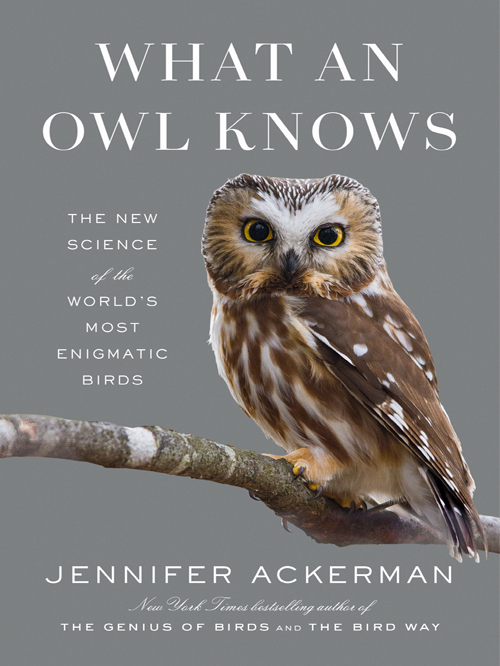 Jennifer Ackerman’s What An Owl Knows is a love story. It concludes with Black conservationist and photographer Day Scott, who suffered a traumatic brain injury in a vehicle crash, holding an Elf Owl, the world’s smallest, about the size of a sparrow, in her hand. Day, who is studying the habitats and effects of climate change on six small owl species on Norfolk Island in Australia, wonders what they are both thinking. “I felt like I partially knew. She is so tiny and fragile, and we are so big… I was looking at her and feeling like we had some kind of connection, because I was trying to care for her in the best way I possibly could. And whatever the importance of life was, right then it came down to this one owl I was holding in my hand.” Jennifer Ackerman’s What An Owl Knows is a love story. It concludes with Black conservationist and photographer Day Scott, who suffered a traumatic brain injury in a vehicle crash, holding an Elf Owl, the world’s smallest, about the size of a sparrow, in her hand. Day, who is studying the habitats and effects of climate change on six small owl species on Norfolk Island in Australia, wonders what they are both thinking. “I felt like I partially knew. She is so tiny and fragile, and we are so big… I was looking at her and feeling like we had some kind of connection, because I was trying to care for her in the best way I possibly could. And whatever the importance of life was, right then it came down to this one owl I was holding in my hand.”
Or, take the amazing abilities of Marjon Savelsberg to hear and distinguish between the sounds produced by individual owls. Savelsberg did not plan to study owls. A trained classical musician who studied with the Johann Strauss Orchestra, Savelsberg had to give up music as she developed difficulty breathing and controlling her muscles. Doctors said that her idiopathic cardiomyopathy would not let her live more than a decade. Instead she took to studying owl vocalizations, both listening to variations in timing, timbre, and pitch, as well as analyzing spectrograms. Now she has been given special permission to enter a large, dark quarry in a natural area, riding a mobility scooter to listen and get recordings of Eurasian Eagle Owls. Her research helps transform what we know about owls. But it is Savelsberg’s own transformation by owls and their allure that is of equal importance. “From that moment on I was allowed to go into areas where no one else could go,” she explains. “I suddenly had colleagues again and was seen as much more than someone with a disability. After having to give up music, I had been so depressed.” Savelsberg realizes she is still a musician and that “All the skills I learned, the talent I have, I can still use…Because I am so fascinated by sound, I can do a lot for this bird.” Read more Purchase here | | | | | | ‘Universities on Fire’ is Brisk, Inspiring and Sobering Universities on Fire
Higher Education in the Climate Crisis Bryan Alexander 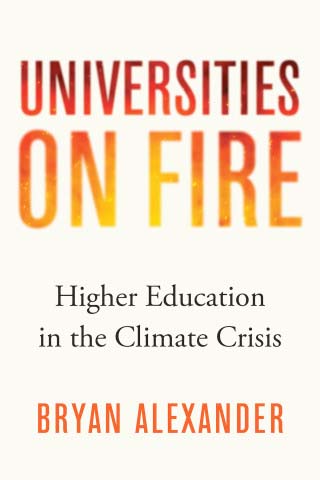 In a new book, Georgetown University futurist Bryan Alexander ponders higher education’s next 75 years in a climate-changed world. In a new book, Georgetown University futurist Bryan Alexander ponders higher education’s next 75 years in a climate-changed world.
The University of New Brunswick’s Harriet Irving Library is an impressive building with a wonderful collection. But it may have a name problem. In a climate crisis, can the intellectual center of a university be named after the matriarch of an oil and gas family?
Looking ahead, it’s not hard to imagine faculty, staff, and students asking this question and a million questions like it on campuses around the world. Should universities ban the combustion engine and turn parking lots into green spaces, vegetable gardens, apple orchards, or even small solar farms? When does it make sense to build sea walls and when does it make better sense to cut and run? Should engineering faculties be prohibited from undertaking controversial research in geoengineering, or will that research be essential to a hothouse Earth? In what ways can campuses reduce their carbon footprint through bike lanes, passive buildings, and vegan dining halls? An adjunct professor and senior scholar at Georgetown University, Bryan Alexander surveys the next 75 years to see how universities and colleges will be impacted by the climate crisis and what they can offer humanity as it navigates climate breakdown. Long story short, it ain’t pretty and universities can offer a lot, in terms of research, teaching, and leadership. Alexander studies change over time, much like a historian, only he’s not a historian. He’s a futurist who looks at transitions, trends, and horizons to forecast what is coming down the pike. Researching the future isn’t tarot cards and crystal balls. It’s serious stuff. It helps too that Alexander is a lovely writer with a knack for clarity and a fondness for epigraphs. (The epigraphs alone are worth the price of admission.) Read more. Purchase here. | | | | | | ‘The Heat Will Kill You First’ is a Chilling Book — and a Warning Author Jeff Goodell on an invisible, stealthy, and universal threat. 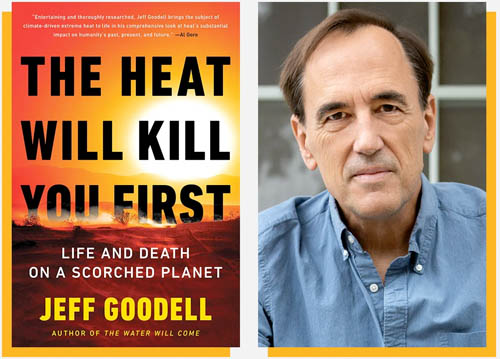 On an early August morning in 2021, a family — two parents in their 30s and 40s, their 1-year-old, and a big dog — set out on a hike in California’s Sierra Nevada mountains. The temperature was a comfortable 70 degrees Fahrenheit when they started out, but the day became dangerously hot as the four began the climb back up to where their truck was parked. At ground level, the temperature was likely hotter than 110 degrees F. They never made it back. All four of them — the dog, the parents, the baby — died on the trail. On an early August morning in 2021, a family — two parents in their 30s and 40s, their 1-year-old, and a big dog — set out on a hike in California’s Sierra Nevada mountains. The temperature was a comfortable 70 degrees Fahrenheit when they started out, but the day became dangerously hot as the four began the climb back up to where their truck was parked. At ground level, the temperature was likely hotter than 110 degrees F. They never made it back. All four of them — the dog, the parents, the baby — died on the trail.
County sheriffs struggled to determine what caused a healthy family to drop dead with no evidence of foul play or struggle. Was it toxic algae from the river that flowed along the bottom of the gulch they hiked beside? Did they accidentally breathe in carbon monoxide from an open mine shaft near the trail? But the answer was right in front of them the whole time. Two months after the bodies were found, authorities announced the official cause of death: hyperthermia and dehydration. The family had overheated. That story is one of many examples of heat’s deadly toll in The Heat Will Kill You First, author and climate change journalist Jeff Goodell’s new opus about extreme heat. “If there’s one thing in this book that will save your life,” Goodell writes, “it is this: … if your body gets too hot too fast — it doesn’t matter if that heat comes from the outside on a hot day or the inside from a raging fever — you are in big trouble.” Heat is an invisible, stealthy force, Goodell explains. Because we’re all familiar with it, we think we know how to handle it, how to game it. But heat can’t be negotiated with past a certain threshold — if your body gets hot enough, you die. It’s as simple as that. Read more | | | | | | Plan Your 2023 Campus Events with RCC now! RCC prides itself on its National Campus Network of 65 colleges and universities. We are working to engage faculty members, students, and administrators in our efforts for a more just and sustainable world. With our growing fellowship program, our presence on campuses across the country has never been greater. Contact RCC today to bring our staff to your campus for lectures, workshops, or meetings to help find the best ways to engage your faculty and students in the efforts against climate change, environmental justice, and the work of the Rachel Carson Council. Campus Visits with RCC President, Dr. Robert K. Musil 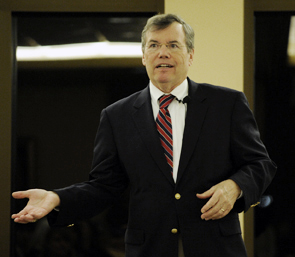 RCC President & CEO, Dr. Robert K. Musil, a national leader in climate change, environmental justice and health is again available to book for in-person campus speaking events! Musil has been called “informative, challenging and inspirational all at once.” He is “motivational” with “intellectual depth” and “extraordinary impact.” RCC President & CEO, Dr. Robert K. Musil, a national leader in climate change, environmental justice and health is again available to book for in-person campus speaking events! Musil has been called “informative, challenging and inspirational all at once.” He is “motivational” with “intellectual depth” and “extraordinary impact.”
Dr. Musil is available for campus lectures and visits involving classes, meetings with campus and community groups, consultations with faculty and administrators, or for Earth Day, Commencement, and other special events. Stays range from one to three days. Reduced fees are in place for 2023-2024 and can be designed to meet reduced budgets. To arrange a campus visit with Dr. Musil, contact the RCC President’s Office at office@rachelcarsoncouncil.org or call 301-214-2400. The RCC also offers talks, classes, and workshops on student engagement, activism, sustainability, and the RCC Fellowship program with, Associate Director of Civic and Campus Engagement, Mackenzie Bodman, Associate Director of Climate Justice, Bella Jaramillo, Associate Director of Communications, Claudia Steiner, Director of Policy and Programs, Maya Cohn. To arrange, contact Associate Director of Civic and Campus Engagement, Mackenzie Bodman. | | | | | | | |  The Rachel Carson Council Depends on Tax-deductible Gifts From Concerned Individuals Like You. Please Help If You can. The Rachel Carson Council Depends on Tax-deductible Gifts From Concerned Individuals Like You. Please Help If You can. | | | |  Sign Up Here to Receive the RCC E-News and Other RCC Newsletters, Information and Alerts. Sign Up Here to Receive the RCC E-News and Other RCC Newsletters, Information and Alerts. | | | | | | | | | | | |